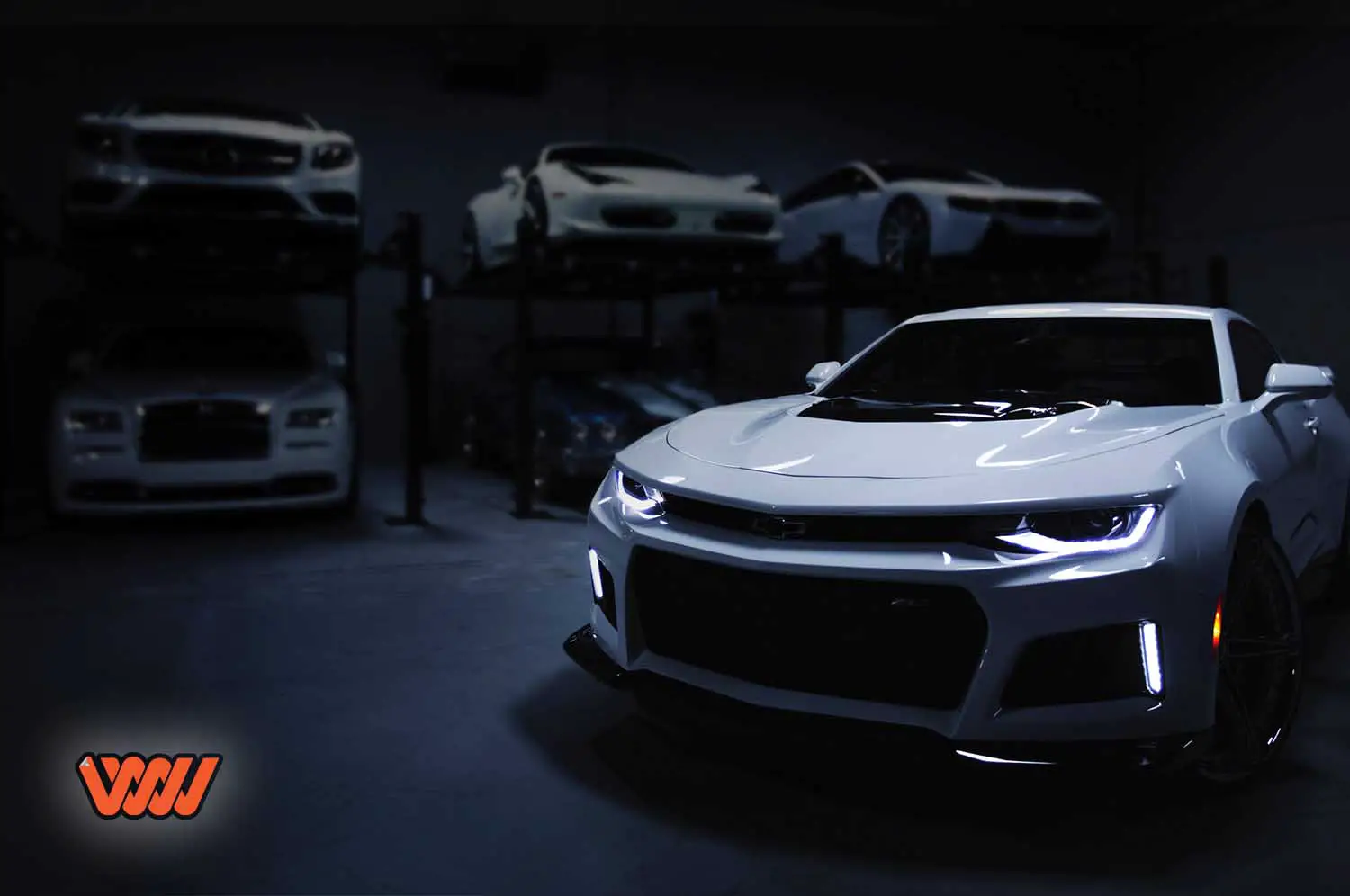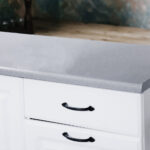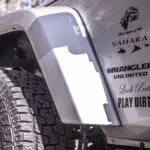If you want to boost your car’s appearance while also introducing a layer of protection against the elements, then you should consider wrapping your vehicle. In most instances, it is less expensive and often a less labor and time-intensive process relative to painting. So how much should you expect to spend to wrap a vehicle?
It costs $1,800 to $5000 to wrap a vehicle. This cost will depend on various factors, including the car model and size, upgrades, the vehicle’s condition, your preferred vinyl color and finish, and your state.
This article will discuss some of the vital questions related to wrapping a vehicle, including the costs associated with wrapping different car types and the average price you can expect to get from the top car wrapping states in the United States.
What Is the Average Cost of Wrapping a Car?
The average cost of wrapping a car is about $19 for every square foot. It costs between $ 5 and $15 for one square foot of PVC, and installation costs are between $3 and $4 for every square foot.
Accordingly, the total cost of wrapping your car can be between $1,800 and $5,000 on average, depending on the type and model of your car, vinyl material finish, and customizations.
According to the experts at Window Tinting Las Vegas, the cost of wrapping will depend on a few key factors, including the type of wrap, the type, model, and curvature of your car, the type of vinyl, and whether you are applying a partial or complete wrap.
J.D. Power supports the above, explaining that critical considerations come into play when setting the cost of wrapping. I will discuss some of these factors below.
Factors That Influence the Cost of Wrapping
Different factors influence the cost of wrapping, including the following:
- Vehicle type and model
- Body kit
- Vinyl color and finish
- Size of rolls available
- Vehicle condition
- State or region
I will discuss these in greater detail below.
Vehicle Type and Model
The size, make, and model of the car will affect the total cost of wrapping. This is because different car models have different curvatures and square footage. Since these factors will affect the total time needed for the exercise and the complexity of the process, this will be reflected in the cost.
For this reason, vehicles with a smoother surface and minimal corners like a Tesla will attract lower installation costs. In contrast, vehicles of more or less similar size but with more intricate designs will attract a higher cost.
However, it is prudent to have a rough estimation of the expected cost of wrapping for different car types and models. To this end, Window Tinting Las Vegas and JD Power outline the average prices associated with varying models of cars as summarized in the table below:
| Car Type | Average Price (Starts at) |
| Family Sedan | Approximately $3,000 |
| Compact crossover | Approximately $3,500 |
| Compact car or coupe | Approximately $2,000 |
| Truck | Approximately $4,000 |
| Luxury sports car | Approximately $5,000 |
| Full-size SUV | Approximately $4,500 |
| Vans | Approximately $3,500 |
Comparative costs of wrapping different car types and models
The sizes above reflect both the complexity and size differences. For instance, a truck or SUV will definitely have a larger area to cover than a Sedan or coupe. On the other hand, a luxury sports car will attract a different level of complexity, and the costs can go as high as $7,000 for a Ferrari and up to $10,000 or more for other luxury cars.
As elaborated by JD Power, the average price listed above essentially applies to the basic and least complex wrap applications. Therefore, with increased complexity due to customizations, more expensive vinyl material options, and other aspects, you can expect the cost to go up, sometimes significantly.
Body Kit
You can perform various modifications on your cars, such as adding roof scoops, spoilers, and rear bumpers. As in the case of the car model, any customizations will affect the complexity of the process and the time.
These complexities are due to the introduction of unique angles and contours which are not standard. The added time it would take and the increased complexity will mean that if your car has aftermarket alterations, it will cost you more than a standard vehicle.
Vinyl Color and Finish
Vinyl wraps come in different finishes. Therefore, the total cost may depend on whether you want the gloss, matte, satin, or other finish. To put this in perspective, I have listed the different prices for each type of finish in the table below:
| Type of finish | Features | Price (50 ft x 5 ft – full wrap) |
| Metallic | Bright colors and extra reflective shine | $191.36 |
| Carbon | Features carbon layers | $249 |
| Matte | Absorbs light | $299.99 |
Comparative costs of metallic, carbon and matte finished vinyl sheets.
As evident from the table above, different finishes will attract different costs. For instance, a gloss-finished vinyl sheet will cost around $3.40 per square foot, while a satin-finished vinyl sheet costs around $3.50 per square foot.
Size of Roll Available
The size of vinyl rolls also impacts the total cost of wrapping. Accordingly, the average cost of vinyl per square foot tends to go down the larger the size of the rolls.
For instance, using the table above, the average cost of a full wrap of the metallic finished vinyl roll is $191.36. Since a full wrap measures 50 feet (15.24 meters) by 5 ft (1.52 meter), the total square feet of a full wrap of this vinyl material will be 250 square feet (23.22 square meter).
This places the average price per square foot at roughly 80 cents per square foot. In comparison, the average cost of 5 square feet (0.46 square meter) of this vinyl wrap is approximately $11.99. This places the average price per foot at around $2.4 per square foot.
The cost of wrapping will therefore vary depending on the different available lengths of vinyl sheets, coupled with the option you choose.
This makes a significant difference, especially if you are doing the wrapping yourself. Since the price per unit foot goes down as the length of the roll increases, I would advise opting for longer rolls instead of smaller rolls.
Vehicle Condition
Whether you decide to wrap your car at home or take it to professionals, your vehicle’s condition will impact the total cost. As explained by Mathew Askari from Car and Driver, blemishes such as scratches and dents affect not only the cost of wrapping, but also the level of success.
For instance, if you elect to wrap over blemishes such as dents and dings at home, chances are the outcome will be less than satisfactory, and you may have to take your car to the shop for a re-do. This means that you will spend considerably more to have your vehicle wrapped.
Most shops will recommend fixing any scratches, dents, or dings before wrapping your car. Any repairs or adjustments to your vehicle’s surface will attract repair costs. These costs will largely depend on the extent of the damage and your repair shop.
It is, therefore, best to first repair any scratches, peels, or dents on your car’s surface before wrapping your vehicle, as this can potentially save a lot in terms of both time and money.
State or Region
The total cost of wrapping a car will also vary from state to state. The following table compares the different wrapping prices among the top states in the United States.
| State | Cost (Approximate Average Cost) |
| Washington | $2,500 (starts from $2,500 to $5,500) |
| California | $2,495 |
| Nevada | $2,500 |
| Arizona | $2,400 |
| Michigan | $2807 ($11.23 x 250 square feet) |
The table shows the average prices for full-wrapping a car in the top major states based on data from wrapping companies in these states.
While there is a slight difference in the prices offered by different wrapping service providers in the different states, the average wrapping price is approximately $2,500. However, it is essential to note that different service providers may quote varying prices, even when operating in the same state.
Additionally, the final cost will depend on other factors such as vehicle size, already discussed above.
However, for a standard car measuring roughly 250 square feet (23.22 square meter), you can expect to pay sub $3,000 for the basic wrapping option. To make an informed choice, I recommend consulting with professional companies near you and requesting a quote based on your car type and model and your preferred vinyl material, color, and finishing.
DIY Option
While it is always recommended that you take your car to professionals due to the complexity and expertise needed to successfully and expertly complete a wrapping job, you can always do your own wrapping at home.
This video provides insightful tips on how you can wrap your car at home:
In this case, you can save added costs of labor and any incremental costs associated with complexity and time. According to the experts at JD Power, the main cost when you decide to do the wrapping yourself will be the cost of the rolls.
For instance, a basic vehicle will require on average 250 sq. ft. (23.22 square meter) of vinyl sheets for full coverage. Let us compute the cost of the vinyl sheets using the 3M’s standard 2080 series option previously discussed above:
| Dimensions | Cost | Dimensions | Cost |
| 1 x 200 sq. ft. (0.09 x 18.58 square meter) roll | $420 | 2 x 200 sq. ft. (0.18 x 18.58 square meter) rolls | 840 (420×2) |
| 5 x 10 sq. ft. (0.46 x 0.92 square meter) rolls | $180 (36×5) | 0x 10 sq. ft. (0 x 0.92 square meter) rolls | 0 |
| Total cost | $600 | $840 |
The average cost of materials for your wrapping DIY project
If you buy one 200 square foot (18.58 square meter) roll and 5 square feet (0.46 square meter) rolls, you will spend around $ 600. If you add an extra 10 square feet (0.92 square meter) to account for any wastage, your total cost will be just under $650. If you elect to buy two 200 square foot (18.58 square meter) rolls, you will spend under $900 on material costs.
However, even with these cost savings, it is essential to remember that you will still incur additional costs for equipment. These include a spray bottle, a heat gun, knifeless tape, microfiber towels, safety glasses, and other items.
Alternatively, you can purchase the Gomake Vinyl Wrap Tool Kit from Amazon.com, which has everything you need to complete your project at home.
However, this toolkit will increase your total cost to roughly $100, but it is still a more affordable option if you have plenty of time to burn and trust in your experience.
Comparison With Professional Assistance
It costs between $5 to $15 per square foot to install your wrap professionally. If an average car measures around 250 square feet (23.22 square meter), the cost savings will be as follows:
| Price per square foot | Total square footage | Cost of labor |
| 5 | 250 | 1,250 |
| 15 | 250 | 3,750 |
Cost of labor for wrapping a standard 250 sq. ft. (23.22 square meter) vehicle
Therefore, you will save around $1,250 to $3,750 in labor costs if you do the project at home, with the prices accounting for complexity and time.
Now that we have our material and labor costs, let us compute the average price it would take to wrap a standard 250 square foot (23.22 square meter) car.
| Dimensions | Material costs | Labor costs @ $5 | Labor costs @15 | Total cost range |
| 1 sq. ft. and 5 36 sq. ft. rolls | 600 | 1,250 | 3,750 | $1850 to $4,350 |
| 2 x 200 sq. ft. rolls | 840 | 1,250 | 3,750 | $2,090 to $4,590 |
Average price of wrapping a standard 250 square foot (23.22 square meter) car.
Based on these computations, it will cost between $1,850 to approximately 4,590 to wrap a standard 250 square foot (23.22 square meter) car. Of course, the average cost will change depending on the total square feet of the type and model of vehicle.
Conclusion
In closing, the total costs of wrapping your car will depend on various factors, including the complexity of the design, the type, and model, the color and finish of the vinyl, whether or not your car has scratches, and the state in which you decide to get this done.
You have the option of making some savings if you decide to do this at home because professionals will charge between $5 and $15 per square foot.
If you elect to have your car professionally wrapped, it is always a good idea to contact different companies for a quote.
Photo altered by simplelifesaver.com | Photo attribution: Peter Broomfield






